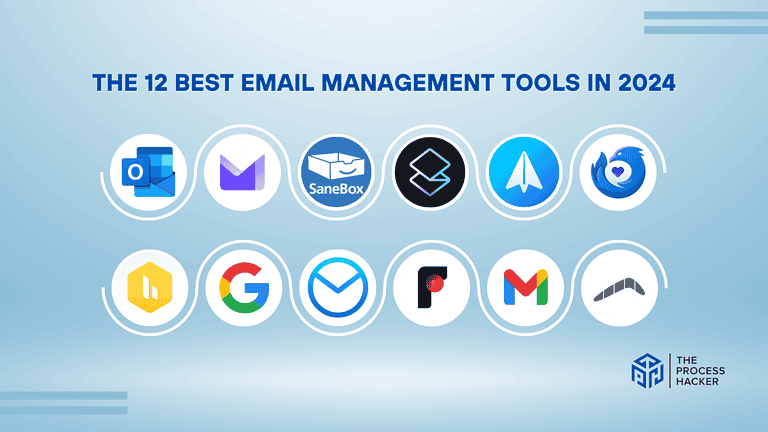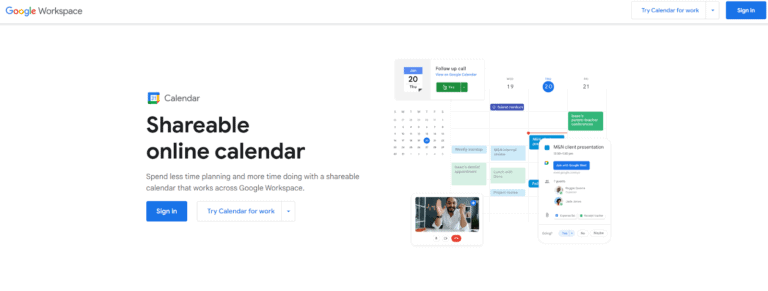How to Master Weekly Planning Even if You’re Chronically Overwhelmed
If you and planning have a love-hate relationship, you’ve come to the right place!
As someone who once spent 15 minutes looking for his keys with the phone in his hand, I know the struggle of trying to stay organized as a busy small business owner. Whether it’s paperwork piling up on your desk or meetings constantly shifting on your calendar, chaos seems to follow you everywhere.
But I’m here to share the weekly planning system that finally broke my cycle of perpetual disorganization. With just a bit of prep work each weekend, you’ll feel less stressed and more in control of your schedule.
I’ll show you how to tame the chaos beast lurking inside your planner. Plus, I’ll share why most weekly plans don’t work and how you can start planning for productivity instead of just busywork on a task list.
Let’s dive in and get you mastering weekly planning, even on your busiest and most distracted days!
What is Weekly Planning?
Weekly planning is more than just jotting down appointments and to-dos. It’s a systematic approach to aligning your daily actions with your overarching goals, ensuring that you stay professionally and personally on track. Dedicating weekly time to map out tasks and responsibilities sets the stage for a more productive and balanced week.
This method isn’t just about filling slots in a calendar; it’s about making intentional choices that lead to more effective time management. Whether you’re a freelancer juggling multiple clients or a busy professional balancing work and home life, mastering weekly planning can significantly enhance your ability to focus on what matters most.
Engaging in this practice means you are taking charge of your time. You’ll start noticing fewer missed deadlines and less stress about the ‘unknowns’ of your entire week.
Why You Need to Master Weekly Planning
Weekly planning is your secret weapon for conquering chaos and achieving your goals. Let’s explore why it’s an essential skill:
1) Provides a clear overview of your week
Think of weekly planning as your command center. You gain a bird’s-eye view of everything on your plate, making it easier to stay focused and avoid feeling overwhelmed.
No more wondering what you should be doing or scrambling to meet unexpected deadlines. A clear week overview empowers you to manage your time and make informed decisions proactively.
2) Helps prioritize important tasks and goals
Not all tasks are created equal. Weekly planning empowers you to identify your most important priorities, ensuring you allocate time and energy where it matters most.
By distinguishing between urgent and important tasks, you can avoid getting sidetracked by less critical activities and focus on what truly moves the needle. This approach also helps you set achievable goals and track progress, creating a sense of accomplishment and motivation.
3) Improves time management and reduces overwhelm
Say goodbye to last-minute scrambles and missed deadlines. With a well-structured weekly plan, you’ll manage your time effectively and experience a sense of calm control, even when things get busy.
You’ll have a clear roadmap for each day, allowing you to tackle tasks with intention and avoid feeling overwhelmed by a never-ending to-do list.
4) Balances work commitments with personal life
Life’s not all about work. Weekly planning helps you carve out dedicated time for personal activities, hobbies, and relaxation, ensuring a healthy work-life balance.
It’s about creating a schedule that honors your personal needs and commitments, leaving you feeling fulfilled and energized in all areas of your life.
5) Align short-term actions with long-term objectives
It’s easy to get caught up in the day-to-day hustle. Weekly planning keeps your long-term goals in sight, ensuring that your daily actions move you closer to achieving them.
By breaking down larger goals into smaller, manageable tasks, you’ll create a sense of progress and momentum, keeping you motivated and on track.
Mastering weekly planning can transform your chaotic weeks into structured, productive ones, setting you up for success both personally and professionally.
How to Create an Effective Weekly Plan
Follow these steps to develop a weekly planning routine that works for you, even if staying organized feels like a constant battle:
- Review and Reflect: Assess the Past Week
- Set Weekly Goals: Define Your Priorities
- Schedule Tasks: Create Your Weekly Timetable
- Plan for Flexibility: Allow Room for Adjustments
#1) Review and Reflect: Assess the Past Week
Evaluate completed tasks and unfinished business: Take a moment to acknowledge what you accomplished last week and identify any unfinished tasks that slipped through the cracks. This reflection helps you understand your patterns and identify areas for improvement.
Identify successes and challenges from the previous week: Celebrate your wins and learn from any setbacks or obstacles you encountered. This will help you refine your approach moving forward and build on your strengths.
Carry over any incomplete tasks or missed goals: Don’t let unfinished business linger. Add any outstanding tasks or goals to your new weekly plan, ensuring they get the attention they deserve. This ensures continuity and prevents important tasks from falling off your radar.
#2) Set Weekly Goals: Define Your Priorities
List your top 3-5 most important tasks or objectives for the week: Focus on what truly matters. Identify the tasks that will make the most significant impact and align with your long-term vision. This helps you stay focused and avoid getting sidetracked by less critical activities.
Align these goals with your long-term projects and personal aspirations: Ensure your weekly goals contribute to your bigger picture. This will create a sense of purpose and keep you motivated, even when tackling challenging tasks.
Break down larger goals into smaller, actionable tasks: Make your goals feel less daunting. Break them down into bite-sized steps, making them easier to tackle and track your progress. This also provides a clear roadmap for achieving your larger objectives.
#3) Schedule Tasks: Create Your Timetable for the Next Week
Use a digital calendar or physical planner to block out time for important tasks: Choose a planning tool that suits your style. Whether it’s a digital calendar or a trusty paper planner, block out dedicated time slots for your most important tasks. This visual representation helps you visualize your week and allocate time effectively.
Include regular commitments, meetings, and deadlines: Factor in your existing obligations, appointments, and any upcoming deadlines. This ensures your plan is realistic and accounts for all your commitments, avoiding scheduling conflicts and missed opportunities.
Allocate time for personal activities and self-care: Don’t forget to schedule time for yourself. Prioritize activities that recharge your batteries and promote your well-being. This is essential for maintaining a healthy work-life balance and avoiding burnout.
#4) Plan for Flexibility: Allow Room for Adjustments
Life happens, and unexpected events are inevitable. Build some buffer time into your schedule to accommodate unforeseen circumstances or last-minute changes.
This will prevent you from feeling overwhelmed and help you stay adaptable when things don’t go according to plan. Remember, a flexible plan is a resilient plan.
Key Considerations For Successful Weekly Planning
Mastering weekly planning, especially if you’ve always found organization challenging, involves more than just setting reminders or filling out a calendar. It requires developing good habits that foster both structure and adaptability. Here are some key considerations to help you establish a successful weekly planning routine:
1. Choose a Consistent Time for Planning
Dedicating a specific time each week to sit down and plan is vital. Whether it’s a Sunday evening routine to prepare for the week ahead or a Monday morning routine, consistency helps turn planning into a habit. This regularity ensures that you’re always clear on your upcoming week’s priorities and responsibilities.
2. Review the Previous Week
Start your planning session by reviewing the previous week. What did you accomplish? What small tasks did you miss? Reflecting on the past week helps you understand what works, what doesn’t, and how to improve your approach to the coming week.
3. Set Realistic Goals
While it’s important to be ambitious, setting too many goals, or unrealistic expectations can lead to frustration and a sense of failure. Prioritize your tasks based on importance and urgency. Identify the top three to five tasks with the most impact, and focus your energies there.
4. Incorporate Flexibility
While structure is crucial, rigidity can be a pitfall. Life is unpredictable—last-minute tasks will arise, meetings might get rescheduled, or you might just not be in the right headspace for a particular task. Build flexibility into your schedule by leaving open blocks of time to accommodate these changes.
5. Use Tools That Fit Your Style
Whether you prefer a digital app that syncs across your devices or a simple pen and paper, the right tools can make the process smoother and more enjoyable. Choose tools that complement your workflow and personality. If you’re visual, a planner with color coding might be practical. If you’re tech-savvy, a comprehensive app that allows for detailed scheduling might be ideal.
6. Break Tasks Into Smaller Steps
Large projects can be overwhelming if tackled all at once. Break them into smaller, manageable tasks. This not only makes it easier to start but also provides a clearer path to completion.
7. Schedule Downtime
All work and no play can lead to burnout. When planning your week, remember to schedule time for yourself—whether it’s reading, a hobby, or simply doing nothing. This not only gives you something to look forward to but also ensures you maintain your mental and emotional health.
8. Evaluate and Adapt
At the end of each week, take a moment to evaluate what you’ve accomplished and what you’ve learned. Use this insight to adapt your planning process. What worked well that you want to continue doing? What didn’t work that needs to be adjusted?
By incorporating these considerations into your weekly planning, you create not only a roadmap for your new and trivial tasks but also a flexible guide that adapts to your life’s rhythm. This balance of structure and adaptability is key to managing even the most chaotic schedules effectively.
Taking it to the Next Level: Integrating Daily Planning with Your Weekly Schedule
To truly excel at time management, bridge your weekly planning with daily planning sessions. Each evening or morning, take a moment to review your weekly plans and then drill down into what needs to be accomplished in the coming day.
This daily check-in allows you to adjust your priorities based on real-time changes and ensures that you’re always aligned with your weekly objectives. Creating a daily to-do list as part of this routine not only keeps you on track with your broader goals but also enhances your day-to-day productivity.
This approach ensures that every day, you are making progress every day, adjusting as necessary, and staying aligned with your ultimate ambitions. By seamlessly integrating daily planning into your weekly routine, you establish a robust framework that supports sustained personal and professional growth.
Alternatives to Traditional Weekly and Daily Planning
It is highly effective to plan your week. It’s not the only approach to organizing your time wisely. If you find traditional methods too rigid or insufficient for your needs, consider these alternatives:
- Monthly Planning with Weekly Adjustments: This method involves setting broader goals at the beginning of the month and making weekly adjustments based on progress and any new priorities. It’s ideal if your projects have longer timelines or if you prefer a macro view of your meaningful tasks.
- Bullet Journaling: For those who crave creativity in their organizational methods, bullet journaling offers a flexible and expressive way to keep track of tasks, goals, and schedules. This method combines elements of diary, planner, and to-do list, allowing for a personalized approach to planning.
- Agile Methodologies like Scrum: Originally designed for software development teams, Agile methodologies such as Scrum can be adapted for personal or team planning outside of tech. This approach emphasizes short sprints of work with regular reviews and adjustments, making it ideal for projects that require flexibility and frequent reassessment.
Each of these alternatives provides unique benefits that might suit your personal or team planning needs better than traditional weekly planning. Whether you need the broad strokes of monthly planning, the creative flexibility of bullet journaling, or the dynamic responsiveness of Agile methods, there’s a planning style that can work for you.
Exploring these options can lead to more effective and enjoyable organization strategies, ensuring that you stay on top of your tasks and goals in a way that best suits your lifestyle and work demands.
Final Thoughts on Planning Your Week Effectively
Mastering the art of weekly planning is truly a game-changer for boosting productivity and achieving personal growth.
As we’ve learned, it all comes down to finding the right balance between structure and flexibility and consistently applying these techniques week after week. I know it may seem overwhelming at first, but trust me, even the most disorganized individuals can transform into efficiently productive superstars with some dedication and practice.
So, feel free to start small and experiment with different methods until you find what works best for you. Just remember to stay consistent, be open to refining your process, and embrace the feeling of accomplishment that comes with ticking off tasks from your planner.
Trust me, once you’ve experienced the magic of mastering weekly planning, there’s no going back. So go forth and conquer your days with confidence and organization – you’ve got this!







